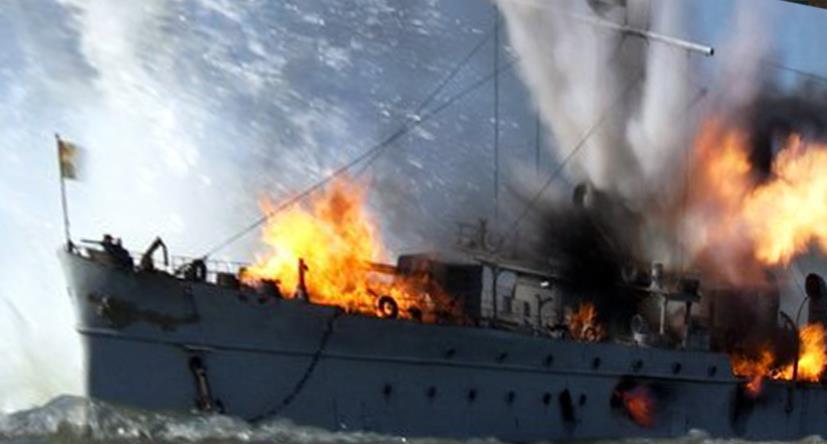Ding Ruchang was able to become the Admiral of the Beiyang Marine Division for two reasons:
First of all, Ding Ruchang himself does have the ability;
Secondly, Ding Ruchang was a native of Hefei and was a descendant of Li Hongzhang, who had grown up in the Huai Army.
Li Hongzhang used Ding Ruchang, a fellow villager in Hefei and an old subordinate of the Huai Army, which is very understandable. Li Hongzhang had high hopes for Beiyang, whether it was guarding the country's gate for the country or getting rich for his own promotion, and only by holding the Beiyang Fleet tightly in his hands could he be assured. However, the premise of all this is to find a person who can do things and has the ability, and Ding Ruchang is just right.

【Talk about Ding Ruchang's ability】
Ding Ruchang's ability is not that civilian officials rely on lip service to mix up the official field, but rely on fighting on the battlefield, gaining military merit step by step, and has been recognized by many big men.
The fact that Ding Ruchang was a general of the Taiping Army was not a shameful thing. In the war years, each had its own master in order to survive. Ding Ruchang followed Cheng Xueqi during the Taiping Army, and Cheng Xueqi later became a famous "tough general" in the Huai Army. In 1853, the Taiping Army invaded Anhui, and many people in Anhui responded, and this year, Cheng Xueqi was 25 years old and Ding Ruchang was 18 years old, and they followed the Taiping Army. Cheng Xueqi made many military achievements and became a major general under Chen Yucheng's Ye Yunlai, while Ding Ruchang was still an unknown young man.
In 1860, the brothers Zeng Guofan and Zeng Guoquan besieged Anqing, while Cheng Xueqi guarded the stone barrier positions outside the north gate of Anqing City, repeatedly thwarting the xiang army's offensive. After repeatedly failing to attack, the Zeng Guofan brothers plotted against Cheng Xueqi, and Cheng Xueqi led hundreds of people to defect to Zeng Guoquan, including Ding Ruchang.
In fact, fate is a lot of times, it is a coincidence. A few days ago, Ding Ruchang was still fighting to defend Anqing, but a few days later, he was going to fight to break through anqing city. Zeng Guoquan used the surrender of these people as cannon fodder, and Cheng Xueqi was willing to give his life in order to accept the name. After the attack on Anqing, Cheng Xueqi was promoted to guerrilla general (from Sanpin) and became the commander of a battalion, while Ding Ruchang was promoted to qianzong (六品) and became a sentinel officer in charge of 100 people.
In the Xiang Army, the Anhui people were not welcomed. Exactly in 1862, Li Hongzhang formed the Huai Army. Ding Ruchang followed Cheng Xueqi to Li Hongzhang's men. By chance again, Liu Mingchuan, a big coffee in the Huai Army, saw that Ding Ruchang was brave in battle, so he asked Ding Ruchang to enter the inscription camp. Liu Mingchuan suppressed the Taiping Army, and the pingding of the Twist army was prominent, and Ding Ruchang also made great achievements under Liu Mingchuan.
By 1864, the Huai army had swelled from more than 6,000 to more than 70,000. The official positions of the generals of the Huai Army also rose and rose. At this time, Ding Ruchang was already a deputy general from Erpin. By 1868, because of the merits of destroying the Eastern Twister Army, Ding Ruchang was already a general soldier with the rank of viceroy (正二品), and he also received the brave title of "Batulu". At this time, Ding Ruchang had become one of the main generals of the Huai Army.
[How did Ding Ruchang think of the Dry Navy?] 】
In 1874, the imperial court disarmed, and Liu Mingchuan wanted to lay off several battalions led by Ding Ruchang. Ding Ruchang had a conflict with Liu Mingchuan and went home to retire. After staying for two years, Ding Ruchang couldn't stay idle, so he went to Li Hongzhang's place and walked around.
Li Hongzhang was just preparing for the navy, so he said to Ding Ruchang: "You have an awkward quarrel with Liu Mingchuan, just don't mix in the army, go to Britain to learn the navy." Li Hongzhang admired Ding Ruchang, and Zuo Zongtang also admired Ding Ruchang. Zuo Zongtang was preparing to recover Xinjiang and wanted to transfer Ding Ruchang, but Li Hongzhang did not give it. As a result, Ding Ruchang participated in the Beiyang Navy from scratch.
From 1879, Li Hongzhang officially transferred Ding Ruchang to Beiyang and served as "Supervisor". By 1888, the Beiyang Navy was officially formed, nearly a decade later, although Ding Ruchang had previously been in the Army. But ten years of study and going abroad experience, supervising the construction of warships in Britain and Germany, leading the fleet to return to the sea, leading the fleet to visit Japan... Ding Ruchang can indeed stand alone in the Navy.
Li Hongzhang honed Ding Ruchang for ten years to lead the Beiyang Fleet, and Ding Ruchang had become one of the qing dynasty's most knowledgeable people about the navy. At the suggestion of Ding Ruchang, the Qing Dynasty also established the Water Master School and the Wubei School. As a result, Ding Ruchang had the ability to lead the entire fleet from "governor" to "commander" to "admiral of the navy". To tell the truth, in the Sino-Japanese War, although the Beiyang Navy lost, it did not lose anyone, and it was the army that lost people.